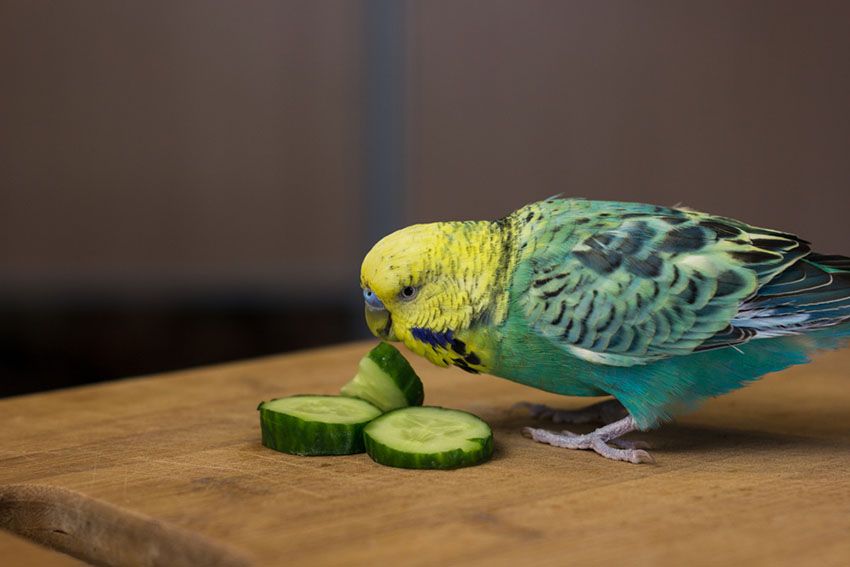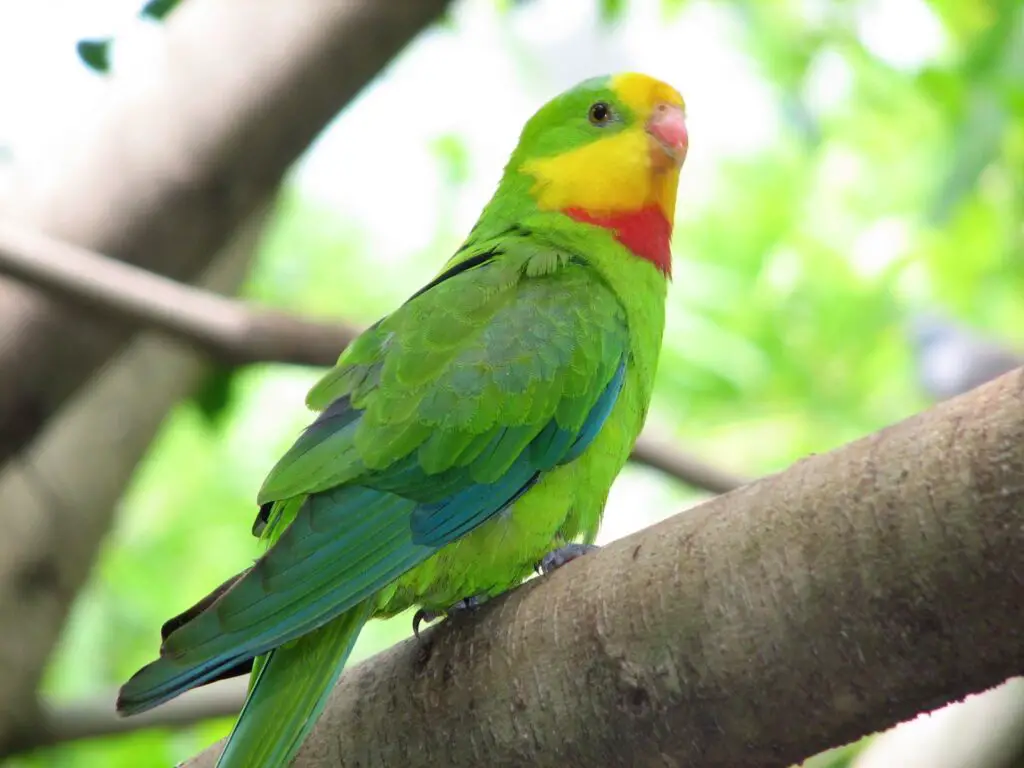Table of Contents
ToggleIntroduction

Pet owners and bird lovers alike have fallen in love with parrots for their colorful plumage and charming personality. These highly gregarious animals do best on a diet that mimics the variety of foods they would find in the wild. Can Parrots Eat Cucumber? While seeds comprise a major portion of their diet, providing them with fresh fruits and vegetables is crucial. Cucumbers, with their crisp texture and high water content, are a staple in human diets. Due to their specific nutritional requirements, parrots require great attention before being fed cucumbers.
Healthy Cucumbers
Content Low in Calories: Cucumbers stand out as a healthy food because they are so low in calories. Like many other animals, parrots need a varied diet to stay healthy and avoid getting fat. Cucumbers are low in calories, so they are a good choice for parrot owners. Who wants to give their feathered friend a healthy, low-energy gift? This trait helps parrots control their weight and lets them enjoy a crunchy snack without worrying about eating too many calories.
Lots of water in it: One thing that makes cucumbers unique is their very high water content. Because parrots come from different climates, the water-retaining features of cucumbers may help them. The large amount of water keeps you hydrated and helps your body digest food. It is especially helpful for parrots because staying hydrated is important for many bodily processes. Such as feather health and keeping the right temperature. Cucumbers are good for parrots because they cool them down and keep them hydrated. It’s especially true in warmer areas.
Minerals and vitamins: Many different vitamins and minerals can come across in cucumbers, which makes a parrot’s food more nutritious. Cucumbers contain vitamin C, which is known to boost the immune system. It could help a parrot’s natural defenses against common illnesses. Cucumbers also have vitamin K, which is important for bone health and blood clotting. Cucumbers contain the chemical potassium, which helps parrots keep their fluid balance and heart health in good shape.
Parrots Eat Cucumbers?
Dealing with Safety Issues: Before giving a parrot cucumber, it is important to talk about the safety issues of these crisp vegetables. One major thing to consider is the possibility of cucurbitacins, chemicals found in some types of cucumber that taste bitter and could be harmful. Cucumbers sold in stores are usually grown to have low amounts of cucurbitacins, but getting your cucumbers from reputable sources is still important to lower the risk. As a bonus, organic or homemade cucumbers may be better for parrots because they are less likely to have been treated with chemicals or pesticides.
Looking into possible benefits: If you carefully add cucumbers to your parrot’s food, they may get many health benefits. Because they are low in calories, they are a great choice for parrots trying to lose weight. The high water content helps keep birds hydrated. Which is especially helpful in hot places or for parrots that tend to get dehydrated easily. Vitamins and minerals, like vitamin C, vitamin K, and potassium, make food more nutritious and may help the immune system, bones, and heart health.
Thinking About Moderation: Even though cucumbers are good for you in many ways, it’s important to be careful when giving a bird a new food. Parrots should eat a wide range of fruits, veggies, seeds, and pellets to ensure their nutritional needs succeed in every way. Cucumbers should applied as part of this balanced method, but they shouldn’t be the main or only source of nutrition.
People with parrots should watch how their birds behave when they eat cucumbers, looking for signs of stomach problems or allergies. As with any change in food, introducing cucumbers slowing down gives the parrot’s digestive system time to get used to them, which lowers the risk of bad reactions.
Risks And Considerations
Pesticides or other contaminants: Pesticides or pollutants are a significant issue when introducing cucumbers or other fresh produce into a parrot’s diet. To guard against pests and illnesses, commercially farmed cucumbers are frequently treated with insecticides. To reduce the chance of exposing parrots to toxic elements. Buy organic cucumbers or properly wash and peel conventionally farmed cucumbers. Washing can assist in reducing pesticide residues on the surface. Whereas peeling removes the outer layer that may have absorbed toxins. Parrot owners can help safeguard the safety of their bird companions by purchasing cucumbers. From reputable sources and implementing these steps.
Concerns About Digestion: Because parrots’ digestive systems are fragile, introducing new foods should be done cautiously. Cucumbers, high in water and fiber, might be good for digestion when consumed in moderation. Excessive ingestion, however, may cause stomach discomfort, such as diarrhea. Parrot owners should gradually introduce cucumbers into their bird’s diet to reduce this risk, giving the digestive system time to acclimate. Monitoring the parrot’s reaction and changing the amount as needed helps. Balance the possible advantages and digestive issues connected with cucumber ingestion.
Allergy Monitoring: Similar to humans, parrots may acquire food allergies. While allergens in parrots are not as prevalent as in mammals, owners must remain watchful. While giving cucumbers or any new food, watch for signs of an allergic reaction. Which could involve behavioral changes, skin irritations, or respiratory problems. If any adverse responses manifest themselves, it is strongly advised that a veterinarian consult with you as soon as possible.
Conclusion
Managing potential dangers like pesticides and pollutants necessitates careful cucumber sourcing and meticulous washing or peeling techniques. Concerns about digestion and possible allergies highlight the importance of gradual introduction and close monitoring. Parrot owners may give their feathered pets a broad and delightful culinary experience by integrating cucumbers into a well-rounded diet among various fruits, vegetables, seeds, and pellets.







